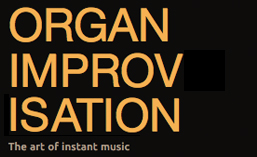Hamilton Crawford Macdougall
First lessons in Extemporizing on the Organ
Forgotten Books offers an almost complete free download available here. There are a few missing pages in the download, but still plenty of useful and useable content. To get the entire book, you need to purchase a subscription, or you can order it from Amazon.
Sometimes, older books can be out of date and contain little relevant information. I knew there would be solid information in this book however as soon as I started reading the preface and the author recommended daily practice:
Natural aptitude alone will not enable one either to play the organ well or to extemporize on it acceptably; one must practice extemporizing regularly, day by day, over and over again, just as one practices the pieces in one’s organ repertoire. A seventeenth-century writer (Francis Quarles) puts it somewhat inelegantly, but squarely, when he writes: ‘I see no virtues where I smell no sweat.’
Improvisation requires consistent practice and focused effort. The very first lesson in the first section on fundamental principles is something I try to emphasize to any student of improvisation or even hymn playing:
Do not stop the flow of the music for reflection;one must keep going.
Near the end of the book, the author suggests writing as a way to hone one’s improvisational skills. While I’ve heard many authors and teachers suggest this, the key suggestion from Macdougall is that it should be done in nearly the same conditions as improvising:
Writing must also be absolutely without erasures to be preparatory to extemporization; Further, it must be at a fairly regular speed. It is nonsense to expect writing to be done in tempo, but it can be done with a fair amount of steadiness; the quick decisions that must be made in effective extemporizing may be practiced just as effectively in writing, provided no erasures are allowed.
Even as much composing as I’ve done, that would be a new experience for me!
The instruction throughout the book is clear and precise. Whether you need to extend a hymn or provide a stand alone piece, the guidance provided in this book will give you a firm foundation.
Recent additions to organimprovisation.com:
Organists:
Forms and Styles:
Newsletter Issue 39 – 2015 06 12
See the complete list of past newsletter issues here.
Sign up to receive future issues using the box to the right on this page.


A reader wrote in to share that the entire book is available at:
https://archive.org/details/firstlessonsinex00macd